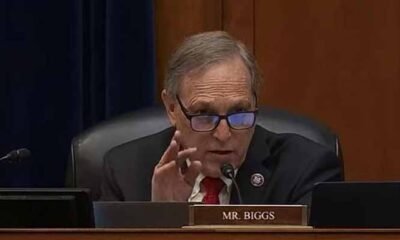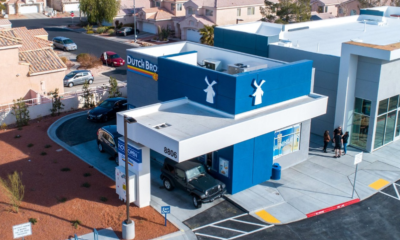Business
Revamping Medicare Advantage: Navigating Senior Healthcare in 2024

By 2050, the demographic landscape of Arizona is poised to shift significantly, with projections estimating that 26% of residents will be aged 65 and older. This marks a notable increase from the current figure of 18%, indicating that senior issues are pressing matters needing immediate attention.
Following the recent elections, it is imperative that leaders prioritize policies aimed at improving the quality of life for this growing population. Seniors are already facing challenges such as financial stability, healthcare access, and a comfortable lifestyle after decades of work. These difficulties are often magnified for those in rural areas.
Mechelle Morgan-Flowers, a nurse on the Navajo Reservation, highlights the pressing healthcare needs of older residents in remote locations. Access to reliable health services is often limited, placing seniors at risk. Programs like Medicare Advantage play a crucial role in enhancing healthcare utilization for this demographic, ensuring essential services are more accessible.
Morgan-Flowers reports firsthand the life-changing impact of Medicare Advantage on her patients. The program offers essential services such as telehealth consultations, medication delivery, and transport assistance, making healthcare accessible even in the most isolated communities.
Moreover, Medicare Advantage helps combat rising living costs by capping out-of-pocket expenses and keeping monthly premiums low. This support allows seniors to maintain their independence and access the healthcare they need according to their specific situations.
Despite its importance, Medicare Advantage is currently experiencing diminishing investment from federal agencies. The Centers for Medicare & Medicaid Services (CMS) have reduced funding for the program, creating uncertainty for many seniors who rely on its benefits. Many older adults are left concerned about the continuity of the services essential to their well-being.
The decline in funding is particularly worrisome for rural communities, which often depend on telehealth and delivery options. Other affordable plans do not offer similar benefits, leaving these populations particularly vulnerable.
Amidst this uncertainty, seniors are looking to political figures to advocate on their behalf. The senior demographic commands a significant portion of the electorate; during the 2022 midterm elections, voters over 50 made up 55% of Arizona’s overall turnout. This trend appears to be continuing, further emphasizing the need for elected officials to prioritize the needs of older residents.
As the number of seniors in Arizona continues to rise, their concerns must influence decision-making processes. Politicians can demonstrate their commitment by supporting Medicare Advantage and formulating actionable plans that tackle senior care needs effectively.
Seniors have laid the groundwork for our communities, and it is crucial to ensure they have adequate resources to thrive in their later years. The road ahead should prioritize strong backing for Medicare Advantage, granting Arizona’s seniors the peace of mind they deserve in retirement.
Now is the critical moment for officials to pledge their support for the programs that are so vital to the aging population as we move forward from the elections.
Mechelle Morgan-Flowers is a utilization review nurse on the Navajo Reservation.


















